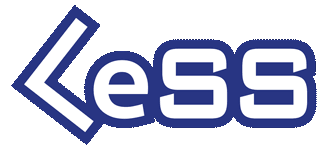Certified LeSS Basics
New York
New York
10001
สหรัฐ
Description :
IMPORTANT: This is a virtual event that allows maximum 10 people in class, to deepen learning.
The class is stretched for two days (about 3.5 hours each day, including breaks) to ensure that high degree of energy and participation remains throughout the session, and there is a better information retention by attendees. The event is scheduled in EST.
If you think that your company would be interested in hosting a private virtual training, please reach out to the organizer (below) for special acomodations. This will also leave more vacancies in a public class
Content Delivery/Facilitation:
Note: This course will be delivered by Certified LeSS Trainer (CLT) and Certified Enterprise & Team Coach (CEC-CTC) Gene Gendel, accompanied by Dana Pylayeva, LeSS Practitioner, TBR Certified Trainer (Training from the Back of the Room) and online facilitation-expert, who will be enabling high-quality collaboration and overall virtual experience. This virtual training is designed to offer you a new level of engagement with your peers. Come prepared to collaborate and learn by doing – we will use Liberating Structures to make sense of the complexity, harvest new ideas and analyze case studies in small expert group discussions.
Course Description:
Large-Scale Scrum (LeSS) is a framework for scaling agile development to multiple teams. LeSS.works gives an overview. LeSS builds on top of the Scrum principles such as empiricism, cross-functional self-managing teams and provides a framework for applying that at scale. It provides simple structural rules and guidelines on how to adopt Scrum in large product development.
The Certified LeSS Basics course is a brief introduction into the LeSS Framework. It provides an overview of the framework and some of the essential concepts that it uses.
The Certified LeSS basics course is for anyone who is involved in a LeSS effort. Basic Scrum knowledge is expected (this is not a beginner's course) and can be achieved by attending a Certified Scrum Master or a Professional Scrum Master course, or thoroughly reading Scrum introduction material such as the Scrum Primer and practicing Scrum. You can read more about CLB and review pre-training materials here.
- Readings Preparing for First Call
- Readings Preparing for LeSS Adoption
- Feature Team Primer, by Craig Larman and Bas Vodde
- Lean Thinking, by Craig Larman and Bas Vodde
- System Thinking, by Craig Larman and Bas Vodde
- LeSS Story
- LeSS Principles
- The Scrum Guide, by Jeff Sutherland and Ken Scwaber
- Scrum Checklist by Henrik Kniberg
- The Scrum Master Checklist, by Michael James
- Scrum Primer
Additional Useful References
- LeSS Events in NYC
- LeSS Communities Globally
- LeSS Newsletters Archive
- LeSS Articles
- LeSS-related Books
- LeSS Videos
- LeSS Brochure
- LeSS Rules
- CLB Flyer
- LeSS Onion (experiments included)
- System Thinking in LeSS transformations (Lv Yi)
Agenda :
Agenda & Learning Objectives:
This review will combine instructor-led structured learning of key principles of LeSS, introduction to System Modelling and Q&A that is based on experience of practical implementation and lessons learned by experienced LeSS coaches and trainers.
-
- Introduction to LeSS (Why LeSS?)
- Lean Thinking and System Thinking
- LeSS - as Scrum-based approach on scaling
- How does LeSS scale over ~8 teams?
- Dynamics of component teams vs. feature teams
- Roles, Events, Artifacts
- What is basic Scrum and what is specific to LeSS?
- Why there is one and only real PO and not so-called team POs?
- Why ScrumMaster in LeSS is a full-time role?
- The complete diagram of LeSS: principles, rules, guides, and experiments
- Impact of LeSS on organizational design (structures, policies)
- Local Optimization vs. Global Optimization
- The ‘Contract’ Game
- The Product
- Product Development Types
- Product Portfolio Management (real portfolios vs. fake portfolios)
- Why are there so many attempts to modify LeSS, without trying it?
- LeSS vs. LeSS Huge
After the workshop, the participants will be able to understand that LeSS is multi-team Scrum, understand what is LeSS, what is not LeSS, and the principles behind LeSS, understand how the current organizational design comes in the way of the organization being Agile and evaluate what changes need to be made to help the organization adopt LeSS. Course participants will be also recognize 'fake' LeSS adoptions and articulate why the latter don't succeed.
